You are here
New Releases
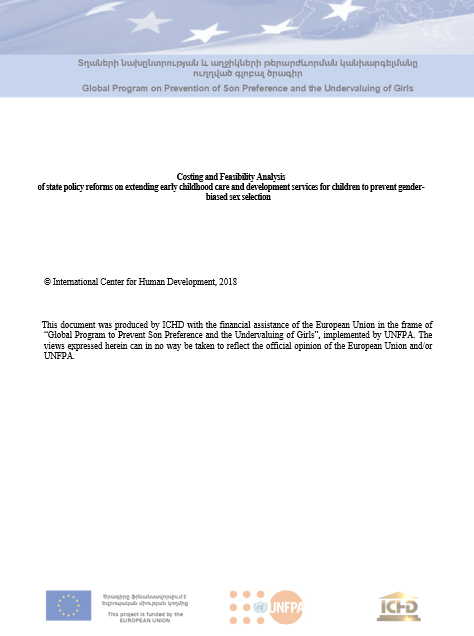
Costing and Feasibility Analysis of state policy reforms on extending early childhood care and development services for children to prevent gender-biased sex selection
This document was produced by ICHD with the financial assistance of the European Union in the frame of “Global Program to Prevent Son Preference and the Undervaluing of Girls”, implemented by UNFPA. The views expressed herein can in no way be taken to reflect the official opinion of the European Union and/or UNFPA.
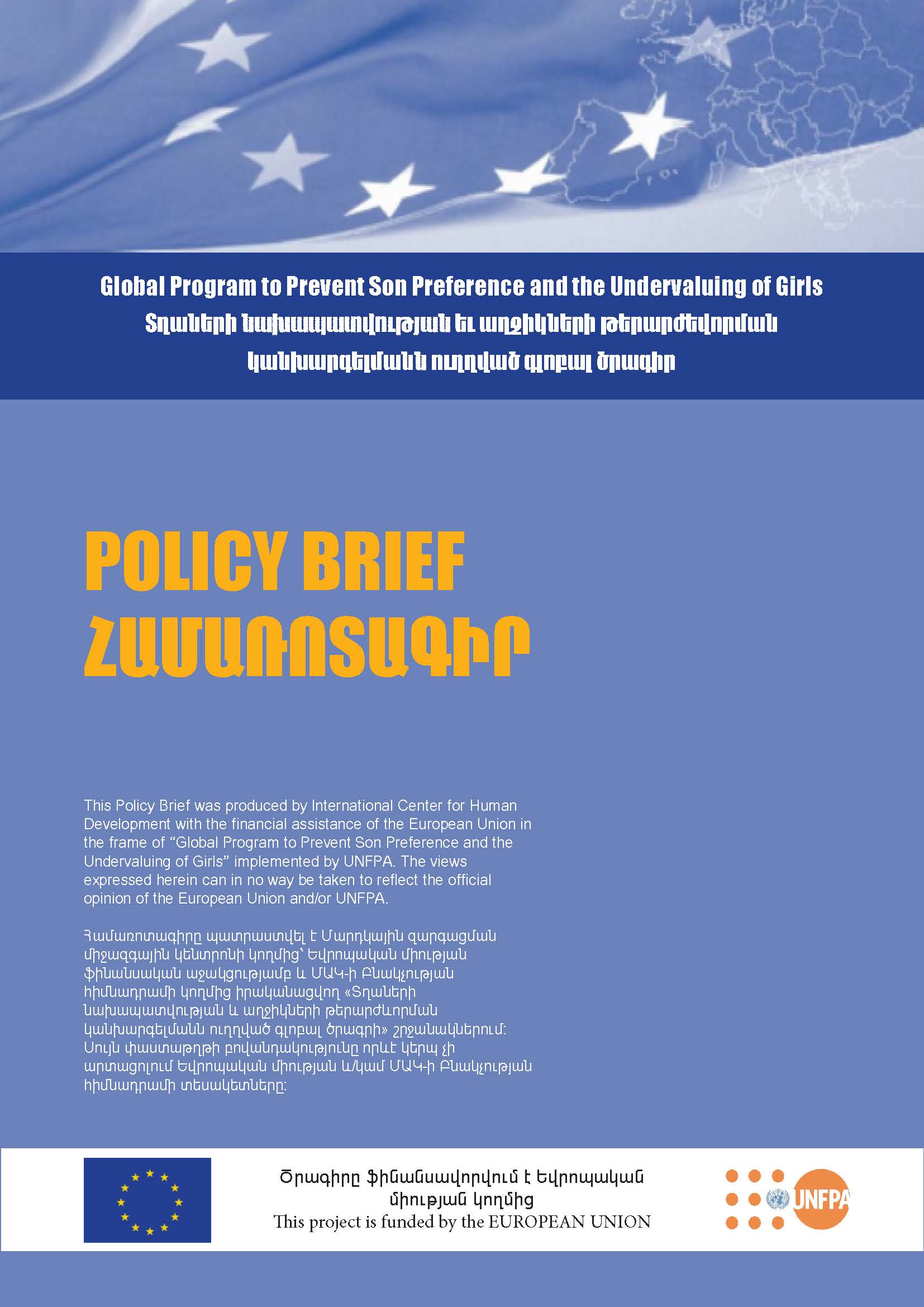
Early Childhood Care and Education (ECEC) policies in the European Union (EU) and their impact on Female Labour Force Participation (FLFP) and female part-time work.
International experience shows that investing in early childhood care and development services is a vital component to ensure women’s access to the labour market, provide them with greater possibilities to achieve a work-life balance and ultimately contribute towards gender equality. The analysis of the development of ECEC policies in the EU between 2014 and 2017 and their impacts on FLFP and gender gaps shows that member states (some more successfully than others) undertook great efforts to boost ECEC enrolment, with the majority of countries achieving a continuous increase in ECEC provision. Concerning Armenia, a provision of efficient ECEC policies would not only be beneficial towards an increased FLFP but at the same time help in combating gender-biased sex selection by providing greater choice and more economic empowerment for women. As previous research has shown, the most important polices that need to be addressed in that matter are the ones concerning ECEC and FLFP. Armenia should thus boost its effort in designing, implementing and monitoring policies offering wide-spread and efficient ECEC provision. The following analysis of ECEC in the EU can serve as guidelines towards well-functioning ECEC policies.
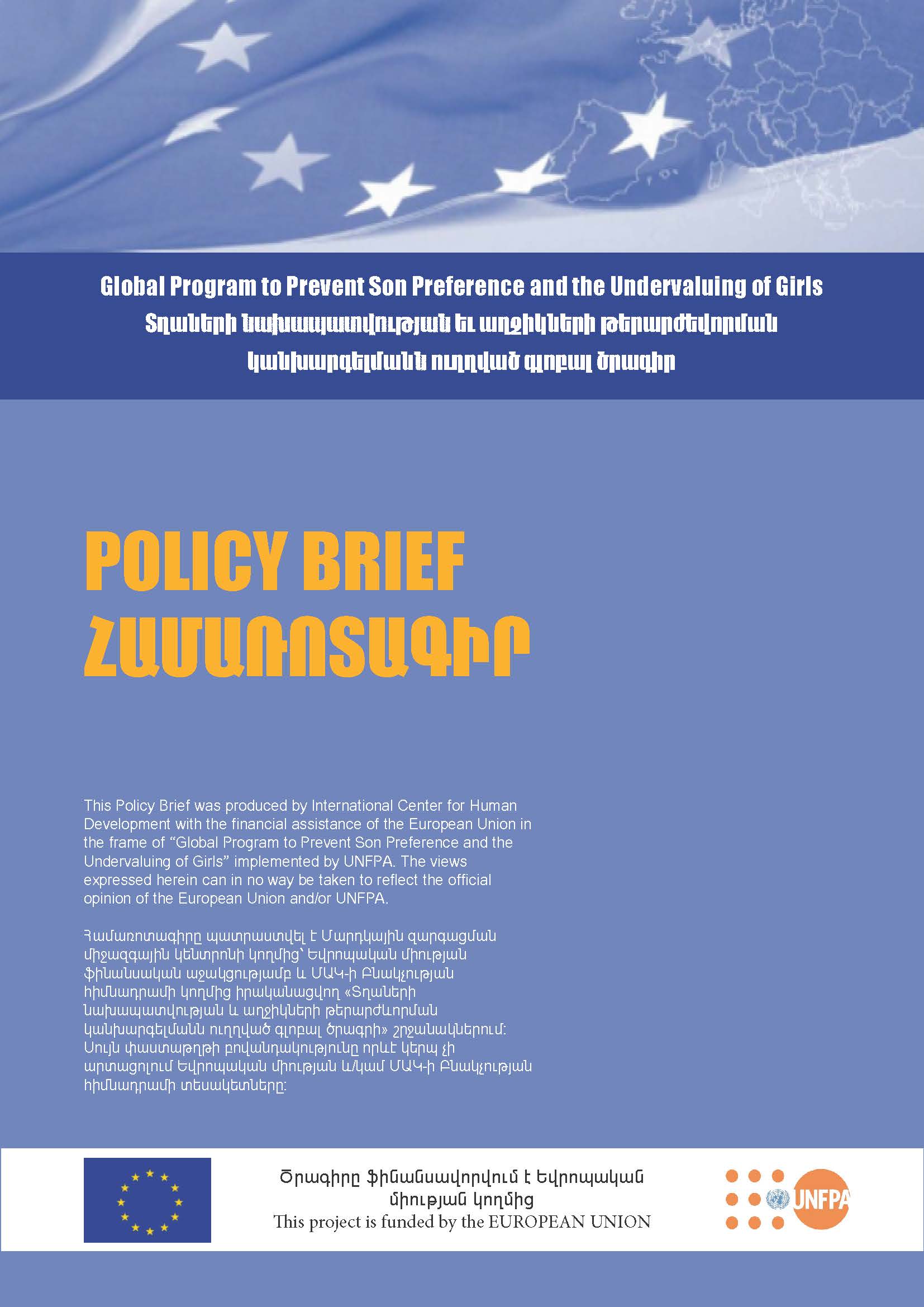
Priorities of Public Policies aimed at Preventing Gender-Biased Sex Selection and Sex-Selective Abortions in Armenia
The efforts to prevent sex-selective abortions in Armenia, specifically implementation of the 2015-2017 Action Plan on Preventing Sex Selective Abortions elaborated in 2015 with the support of the International Center for Human Development (ICHD), the European Union and UNFPA, and ratified by the joint decree of the Minister of Health and Minister of Labour and Social Affair; a series of initiatives carried out by UNFPA and ICHD in 2017-2018; and several projects implemented by other non-governmental organisations, resulted in significant mitigation of the practices of gender-biased sex selection. However, these achievements are still rather fragile and may not be sustained in the light of current political, economic, social, cultural and security challenges. When the country faces serious challenges in the systems that are there to manage uncertainties, including challenges regarding effectiveness of the newly introduced funded pension system and employment services, absence of health insurance and high levels of poverty, any crisis may result in further reduction of fertility rate, which in the light of prevailing gender stereotypes and undervaluation of a girl child will aggravate sex-selective practices, will skew the sex ratio at birth even further and will trigger detrimental consequences. To rest on our laurels and enjoy the current achievements will be an excessive luxury for our country.
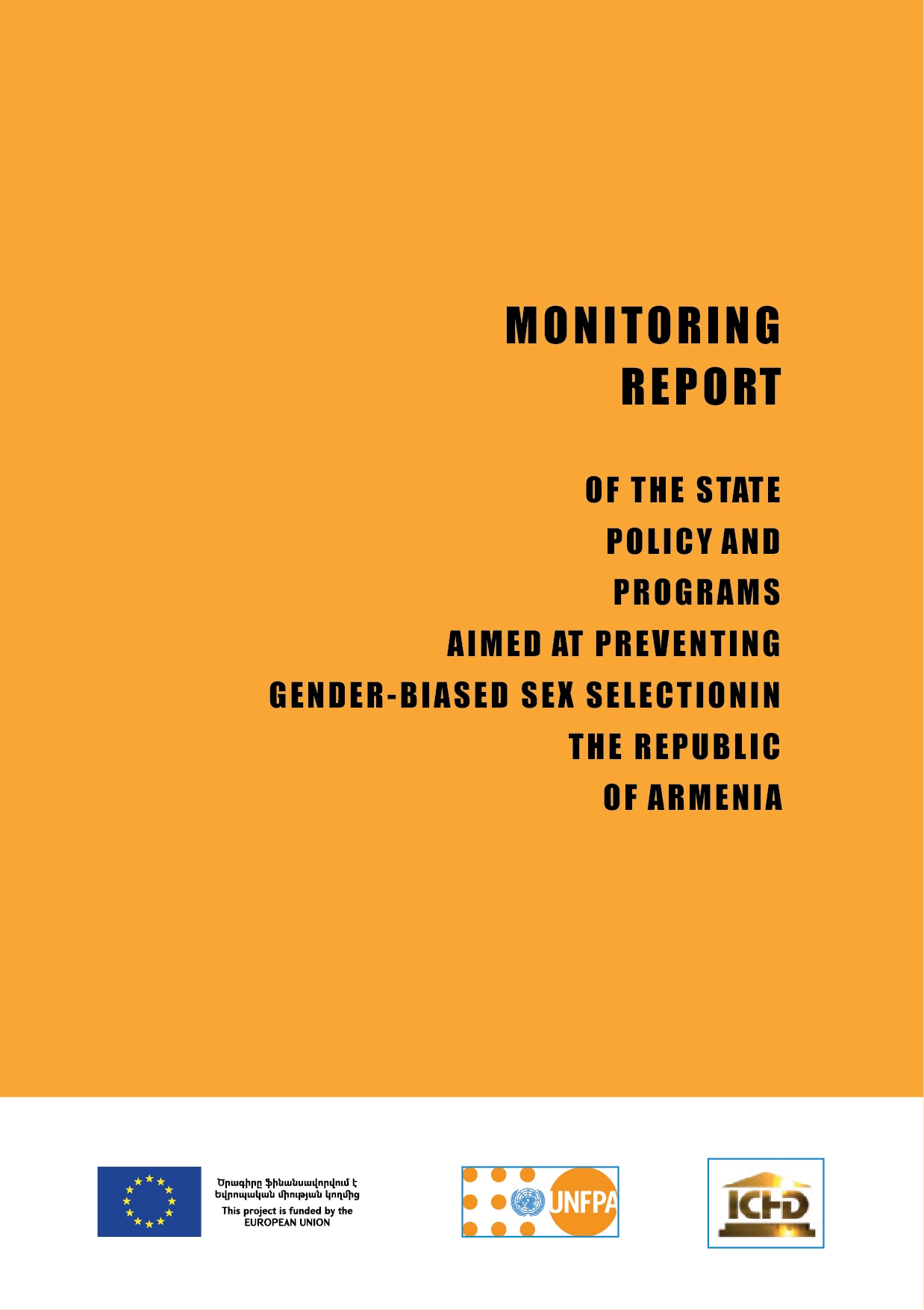
MONITORING REPORT OF THE STATE POLICY AND PROGRAMS AIMED AT PREVENTING GENDER-BIASED SEX SELECTION IN THE REPUBLIC OF ARMENIA
This document was produced by ICHD with the financial assistance of the European Union in the frame of the “Global Program to Prevent Son Preference and the Undervaluing of Girls”, implemented by UNFPA. The views expressed herein can in no way be taken to reflect the official opinion of the European Union and/or UNFPA.
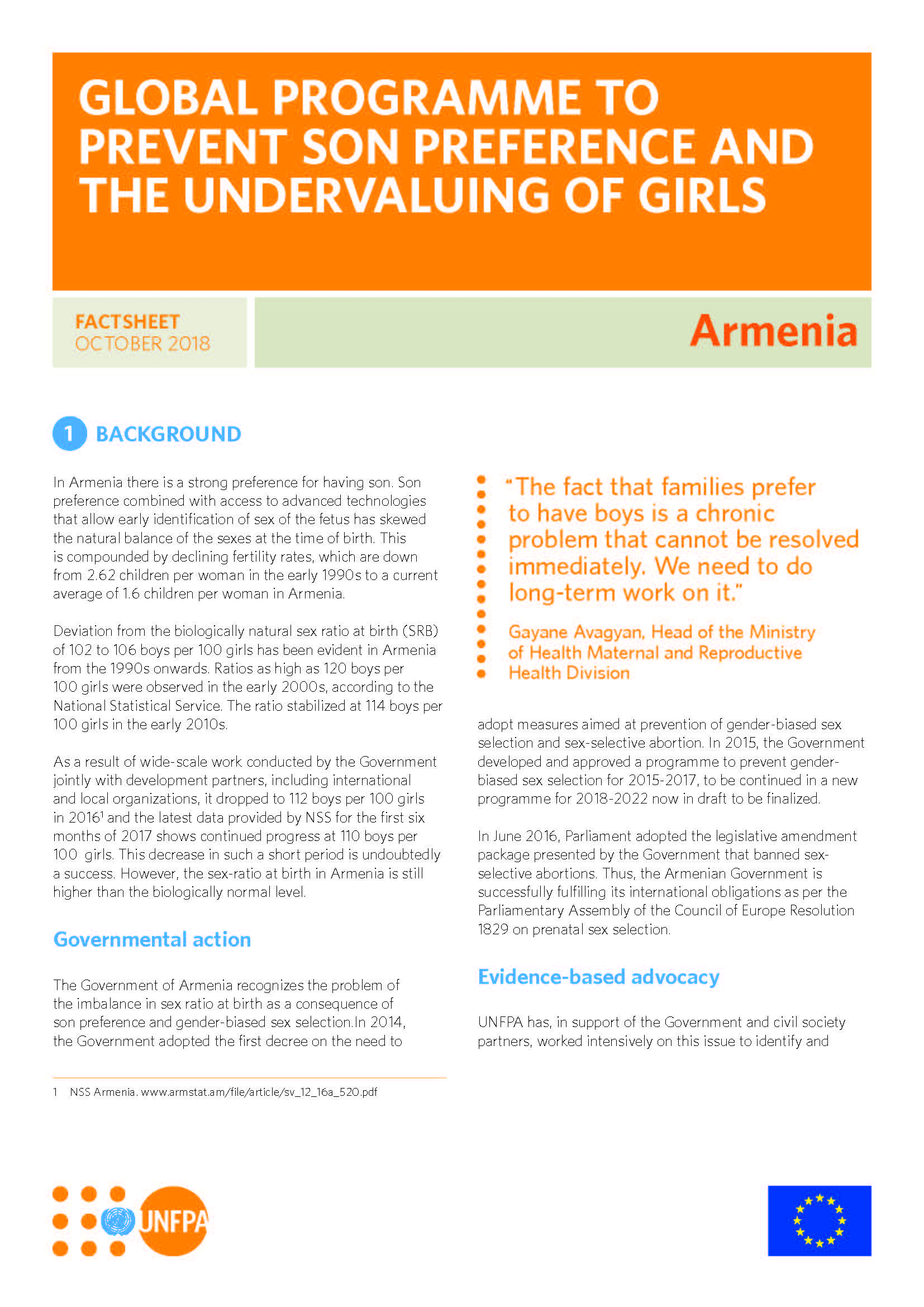
GLOBAL PROGRAMME TO PREVENT SON PREFERENCE AND THE UNDERVALUING OF GIRLS
In Armenia there is a strong preference for having son. Son preference combined with access to advanced technologies that allow early identification of sex of the fetus has skewed the natural balance of the sexes at the time of birth. This is compounded by declining fertility rates, which are down from 2.62 children per woman in the early 1990s to a current average of 1.6 children per woman in Armenia.
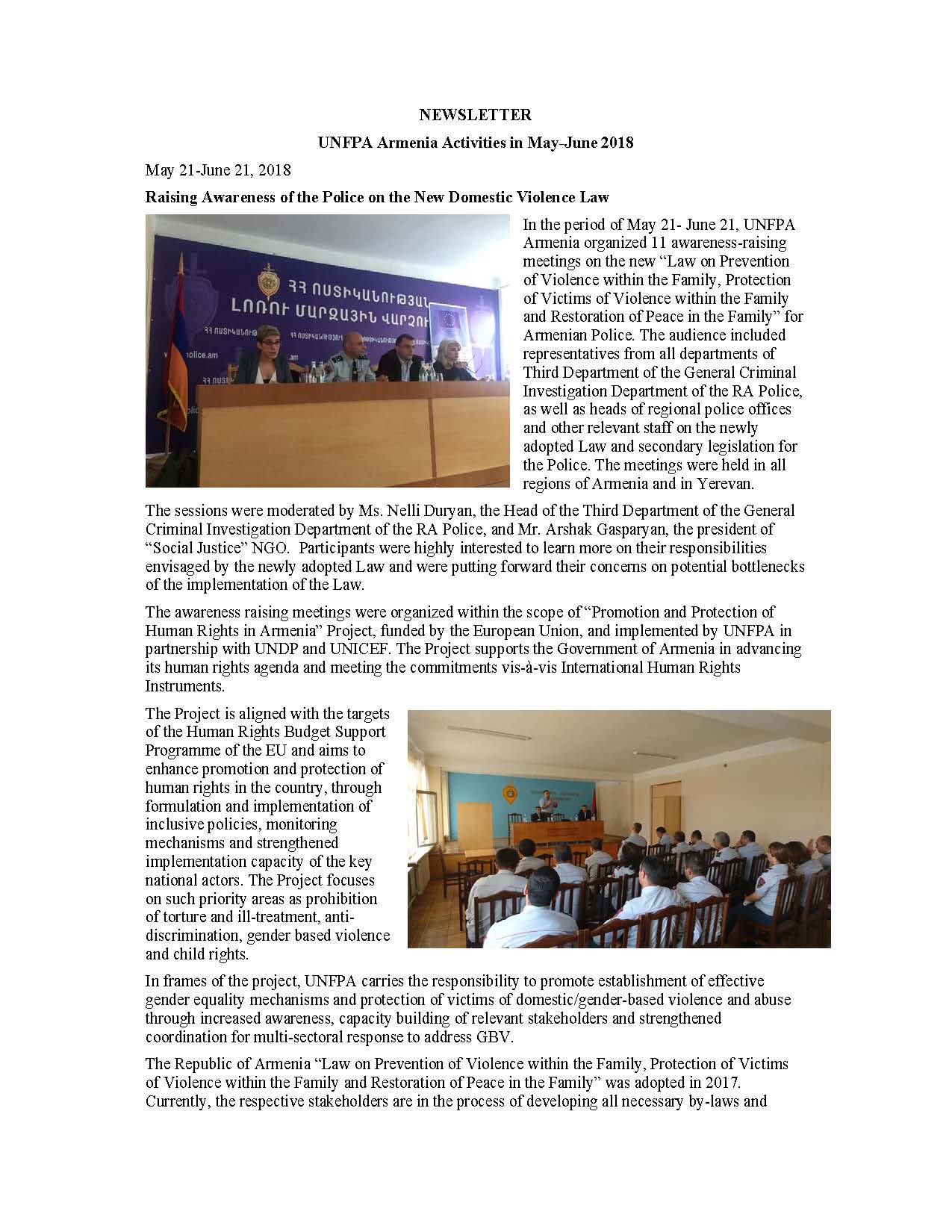
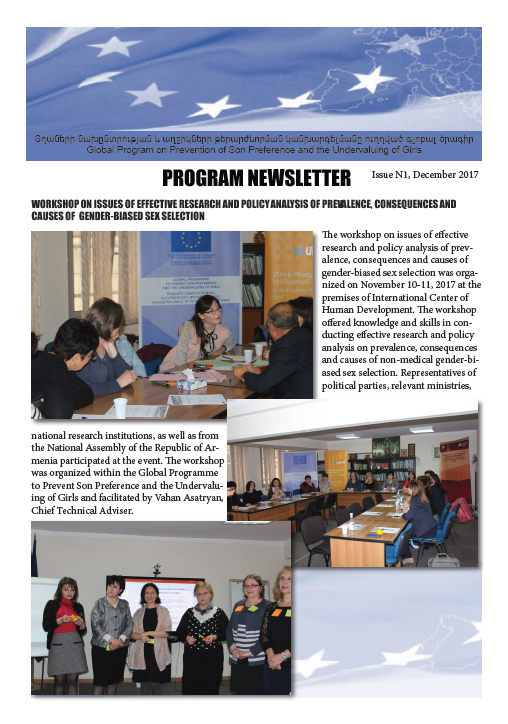
GBSS Program Newsletter 1
Newsletter 1 of the Global Program on Prevention of Son Preference and the Undervaluing of Girls, Armenia, funded by the European Union.
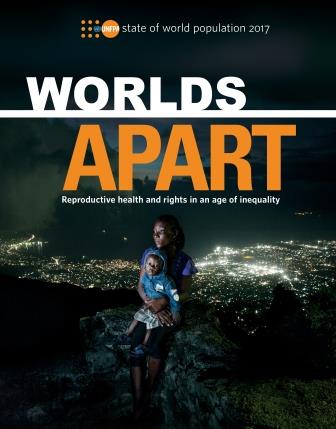
2017 State of World Population report
The costs of inequalities, including in sexual and reproductive health and rights, could extend to the entire global community’s goals, adds the new UNFPA report, entitled, “Worlds Apart: Reproductive Health and Rights in an Age of Inequality.”
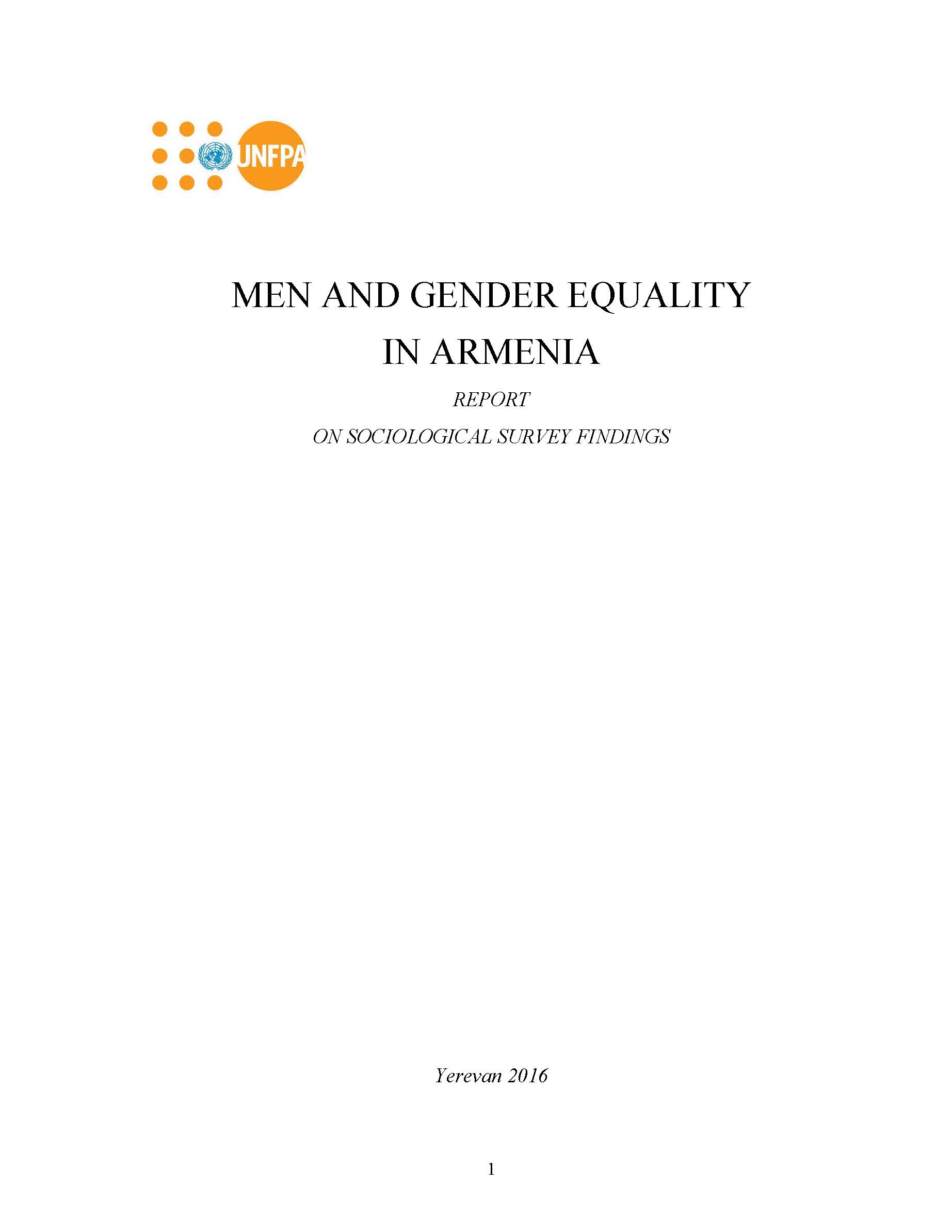
Men and Gender Equality in Armenia
The study was conducted within the framework of the UNFPA program in Armenia in 2015-2016.
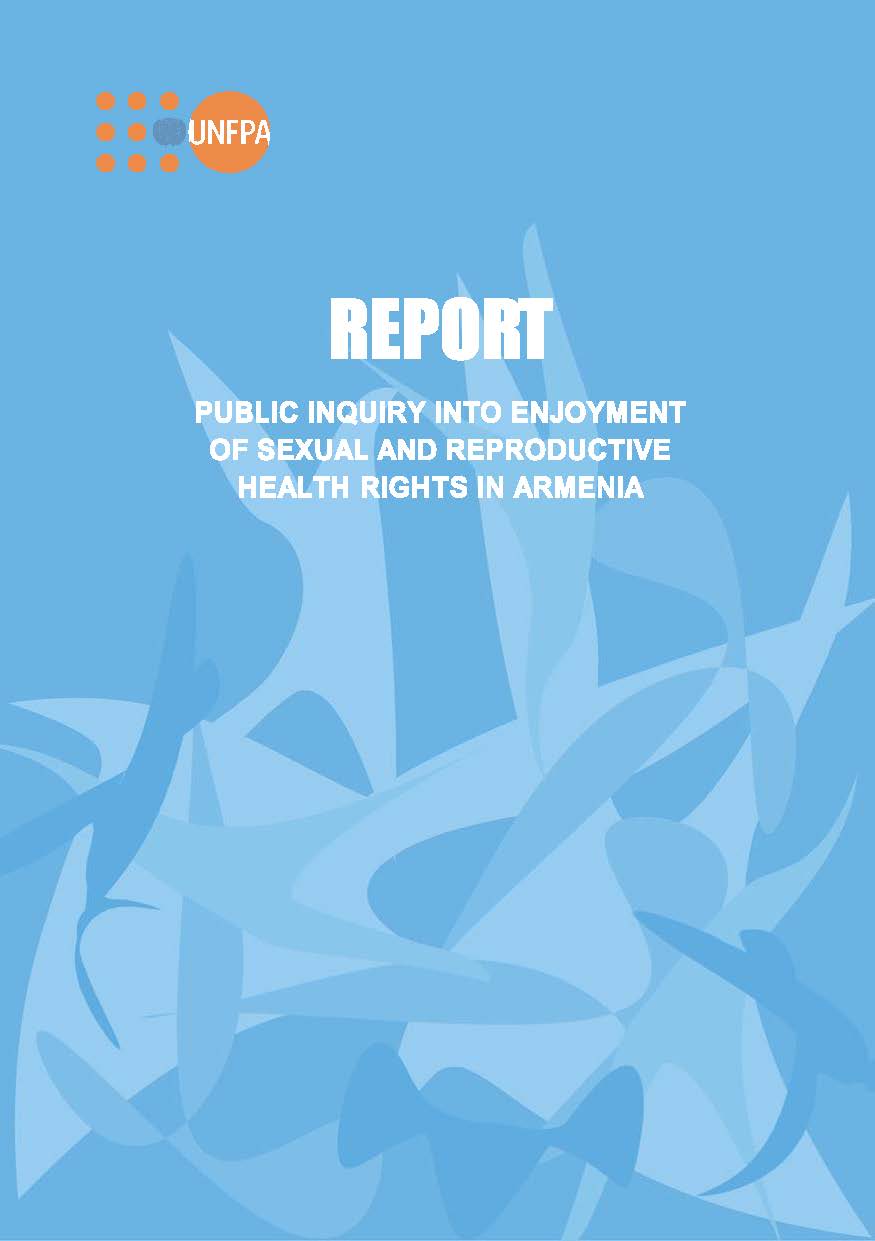
Report on public inquiry into enjoyment of sexual and reproductive health rights in Armenia